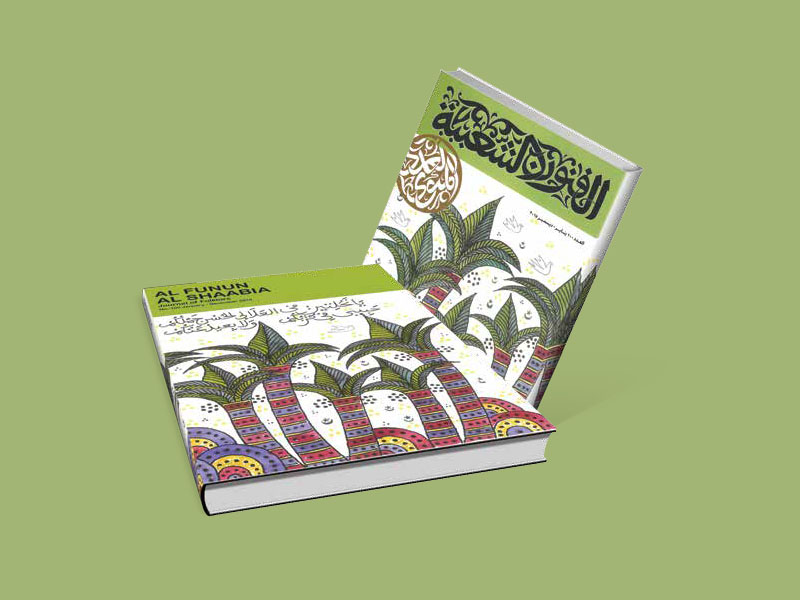With respect and gratitude for the Egyptian school of folk art ..
Issue 33

In 1932, delegations from most Arab countries and European scholars, musicians and historians attended the First Music Conference at the Institute of Arab Music in Cairo.
This historic conference made people aware of the value of Arab folklore. The famous writer Tawfiq Al Hakim stressed the importance of oral heritage, and emphasised the need to protect it. The main aim of this conference was to enhance the role of music and to preserve the heritage of Arab music, especially after the death of great pioneers such as Minyalawi, Saleh Abdul Hai and Sayed Darwish.
After the conference, several works were published to shed light on ways to collect and document the folkloric arts. Egyptian radio also played an important role by broadcasting great folkloric music and songs.
A specialised folklore institute was established for students from around the Arab world with the support of Arab experts, including Ahmad Rushdi Salih, Abdul Hamid Yunis, Zakaria Al Hijawi, Safwat Kamal and Asaad Nadim, and a valuable folklore dictionary was published.
We must not forget the role played by the Egyptian Ministry of Culture and National Guidance, which issued cultural magazines in the 1960s and distributed them throughout the Arab world.
First published from 1965-1971, the Folk Arts and Human Heritage journal reappeared in 1987, headed by Dr. Abdul Hamid Yunis. Last month, this journal - known for its scientific research, prestigious journalism and wide readership - celebrated its hundredth issue.
Readers of these magazines realise the importance of scientific studies and in-depth surveys, and they appreciate efforts to collect, document and preserve Arab folk culture.
Inspired by the great folk arts, the Rida Folkloric Troupe performed at international events. The Egyptian Society for Folk Traditions also helped folk arts.
The Egyptians’ efforts influenced Arab attitudes to establishing folklore centres; I had the honour of setting up the Gulf Folklore Centre in Doha (1981-86) with the support of Egyptian experts.
This centre’s aim was to collect and document folklore materials within the framework of a Gulf-Egyptian vision. I will always remember the insights and efforts of professors such as Abdul Hamid Yunis, Ahmad Ali Mursi, Mohammad Al Jawhari, Safwat Kamal, Hassan Al Shami, Nabila Ibrahim and Abdul Hamid Hawas. When we were preparing to publish this journal, Prof. Dr. Mustafa Jad and other Egyptian scholars were very supportive.
I offer my heartfelt salutations to the Egyptian school of folklore, and my congratulations on the 100th issue of Al Funun Al Shaabia. We pray that Allah the Almighty will support their efforts and help them serve upcoming generations.
Editor-in-Chief







































































